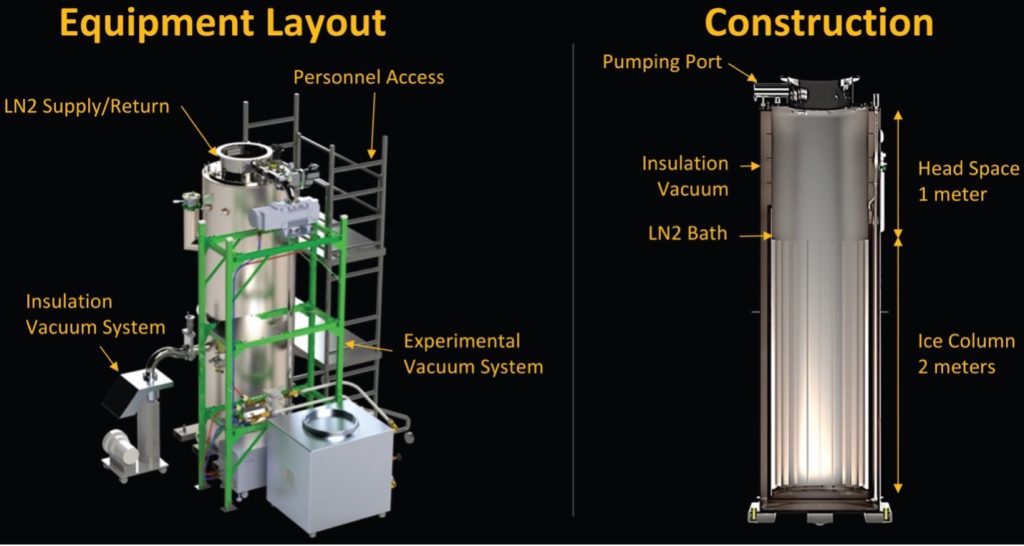Finding life on other planets has long been a goal for scientists around the globe. UF/IFAS researchers will look to icy ocean worlds as possibly possessing evidence of life in their frozen waters. With a recent $6.4 million grant from NASA, the project team will simulate the vacuum, temperature, and radiation conditions on ocean world surfaces to better understand how microbes, information molecules (e.g., DNA), and organic compounds withstand the space-like conditions.

While not exactly like the ocean on Earth, there are multiple ocean worlds in our solar system. Europa, a moon of Jupiter, has an icy outer layer and what is believed to be a massive, sub-ice ocean. Meanwhile, Enceladus, a moon of Saturn, is the only icy satellite known with internal geological activity and active plumes that erupt liquid material from its subsurface ocean through ice fractures into space. It is believed that moons like these could hold evidence of life preserved in ice that forms from the cold space temperatures.
Dr. Brent Christner, professor in Microbiology and Cell Science, and partners in UF’s Geological Sciences department, University of Maryland, NASA Ames, Foundation for Applied Molecular Evolution, Leiden Measurement Technology, and Stone Aerospace will address the fundamental question of whether biosignatures can be preserved in space ice. The team’s results will advise future missions that intend to detect life in our solar system.

“The best available approach to find life on an ocean world would be to send a vehicle that can penetrate the thick ice shells and get wet, but we are many decades from having the technology that enables such advanced capabilities in deep space,” Dr. Christner said. “[The project] will provide the hard underlying data upon which any life detection instrumentation, methodology, or tactical strategy can be tested and evaluated.”
The project is just getting underway. The first step is to purchase and integrate four different high intensity radiation sources, which will be used to simulate the most extreme radiation environment in the solar system: the surface of Europa.
####
The research mission of UF/IFAS is to discover new scientific knowledge, encourage innovative study, and create applications based on sound science that address challenges facing agriculture, natural resources, and interrelated human systems in Florida, our country, and around the world. The UF/IFAS Research enterprise represents the work of nearly 600 faculty members on the main campus in Gainesville
 3
3
